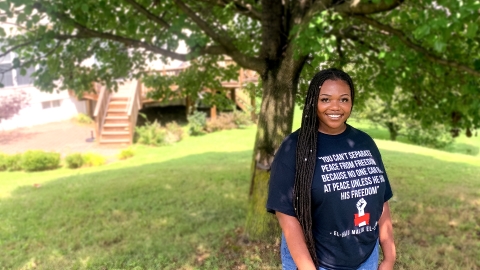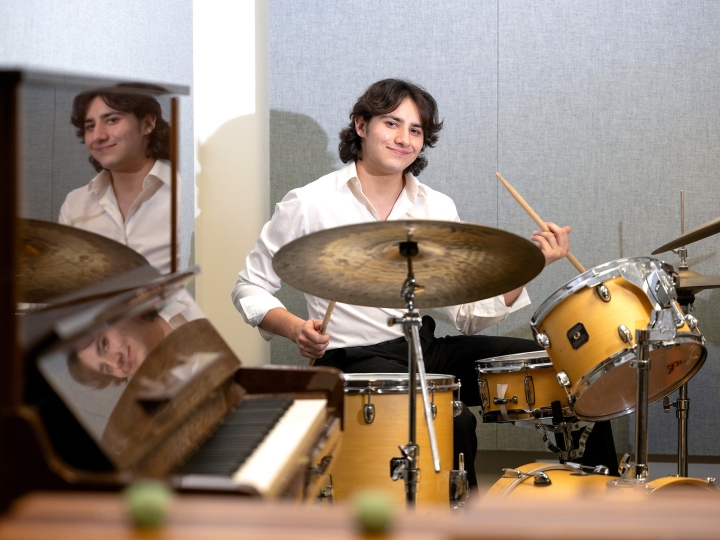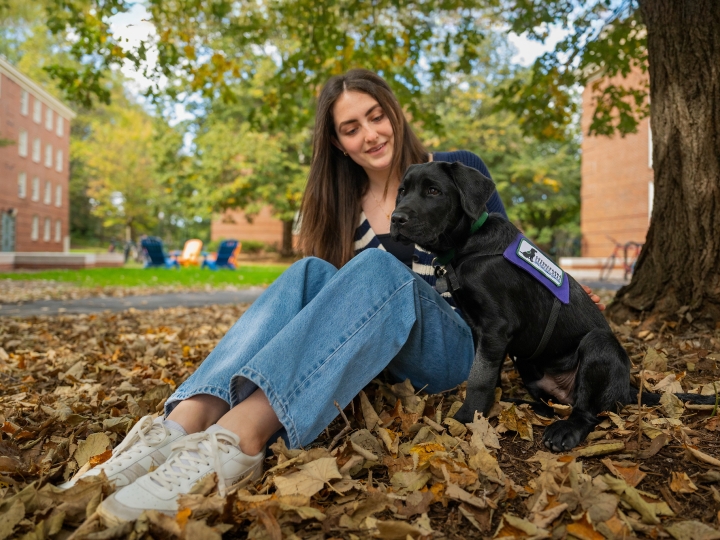
Jerra Holdip ’23, Political Science and Critical Black Studies
October 26, 2020
When she came to Bucknell, Holdip quickly became determined to bridge equity gaps she saw for pre-law students on campus. Photo by Jayla Holdip
I want to use my education to help people back home who have served me. I know that the courses and opportunities I’m experiencing at Bucknell are preparing me for just that.
Washington, D.C., native Jerra Holdip '23 had a sneaking suspicion she'd one day work with government. Growing up in the heart of American politics practically ensured that she'd take an interest in policy and legislation, she says. But it wasn't until her junior year of high school, when Holdip's mock trial team won a national competition, that she knew for certain she'd become a constitutional lawyer.
"Since then, I've been fascinated with the Supreme Court and constitutional law, and the way those who wrote America's founding documents could have never have imagined the world we live in now," says Holdip, who's pursuing a double major in political science and critical Black studies at Bucknell. "As we progress as a society, those documents will inevitably be reinterpreted and amended. I'm passionate about being part of that evolutionary journey."
Holdip didn't wait until college to get started. As a high school intern with the Washington Lawyers' Committee for Civil Rights and Urban Affairs, she helped connect underserved minority communities with local law firms and legal clinics. The experience opened her eyes to the inequity that exists when it comes to accessing legal services, especially for people of color.
When she came to Bucknell as a Posse scholar, Holdip quickly became determined to bridge a similar gap she saw for pre-law students on campus.
"It was clear that we needed a club that specifically targeted the needs of minority students who were interested in going to law school but didn't know where to find resources," she says. "It's important to have a space where we can access opportunities that people who look like us are creating for us."
So Holdip took on a leadership role in Bucknell's newly created Minority Undergraduate Law Society. The club, which launched in spring 2020, provides hands-on learning opportunities for pre-law students of color through conferences, practice sessions for the Law School Admission Test, and networking with alumni and pre-law students at colleges throughout the state.
But that's not the only way Holdip has helped make a difference in her first few years on campus. As a participant in the Bucknell-Mauch Fellowship Program, she also prepared students to vote in the 2020 election by leading in-depth discussion forums on crucial issues — including voting security, healthcare amid COVID-19 and the Supreme Court vacancy left by the death of Justice Ruth Bader Ginsburg.
"Before coming to college, I had loose ideas of how laws and policy surrounding issues like these are created. What I've come to realize in my courses here is how much diverse communities are directly affected," Holdip says. "Engaging with students who are motivated to learn and actively participate in politics and government has further encouraged me to go out and be the change I want to see."
In 2022, bolstered and informed by her work at Bucknell, Holdip took her leadership experience beyond campus when she was elected to a two-year term as the eastern regional representative for Delta Sigma Theta sorority, a historically Black Greek women's organization with a chapter at Bucknell. Together with a co-representative, Holdip will oversee more than 125 sorority chapters in nine states in the Northeast and Mid-Atlantic, as well as the District of Columbia and six countries and geographic regions. She will also sit on the organization's executive board with representatives of the international organization's six other regions.
Through it all, Holdip is keeping her focus on progress toward equity, which requires taking a hard look at how America's founding documents, despite their development, still fail to secure the rights of all citizens.
"We hear language in the Bill of Rights and the Declaration of Independence that says 'all men are created equal.' But when those documents were written, they did not apply to all people, and still don't in some cases," says Holdip, who plans on returning to Washington, D.C., to earn her law degree. "I want to be instrumental in instituting and enforcing laws that really do protect and serve everyone, especially my community back home."

